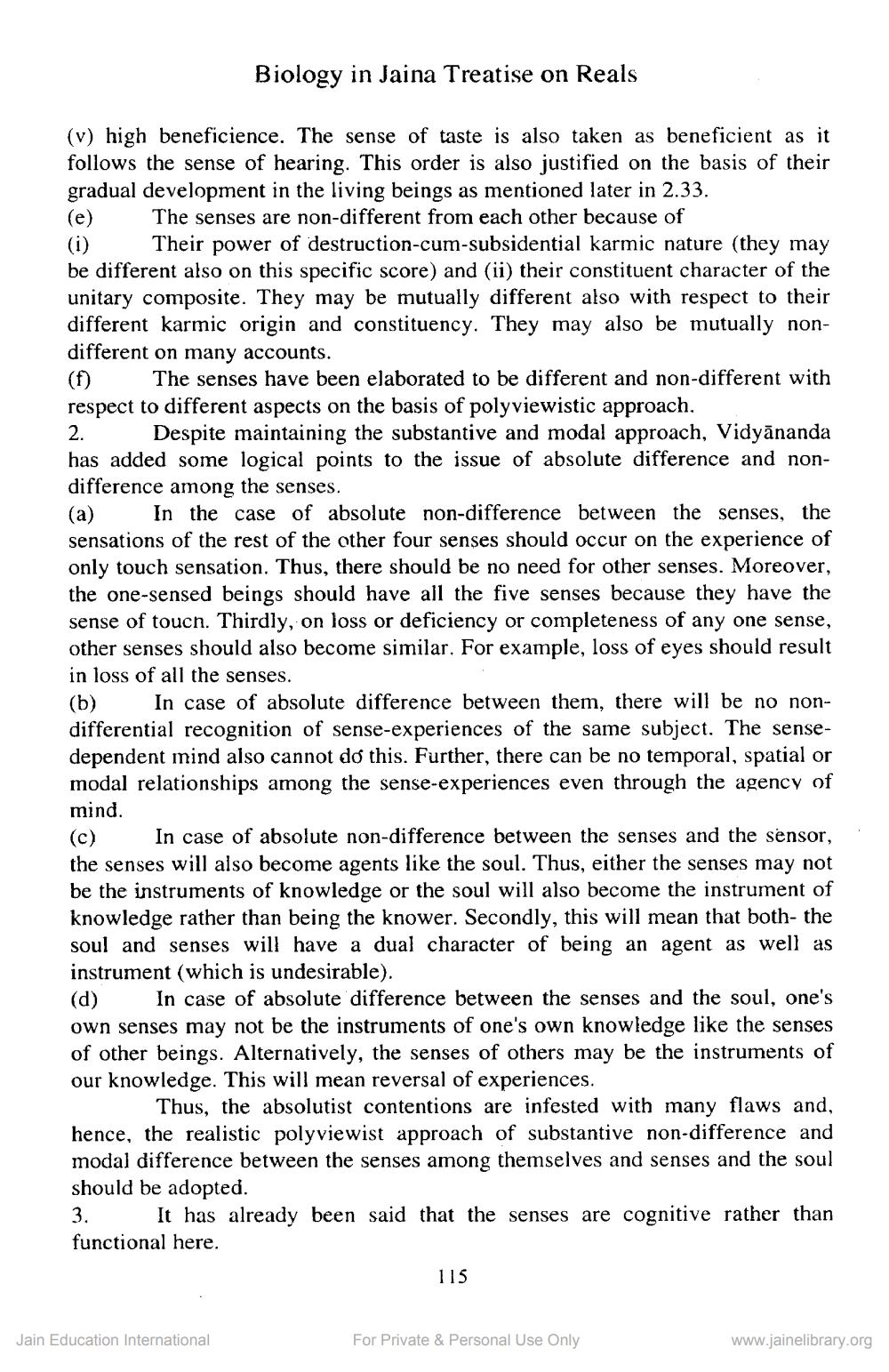________________
Biology in Jaina Treatise on Reals
(v) high beneficience. The sense of taste is also taken as beneficient as it follows the sense of hearing. This order is also justified on the basis of their gradual development in the living beings as mentioned later in 2.33.
The senses are non-different from each other because of
(e)
(i) Their power of destruction-cum-subsidential karmic nature (they may be different also on this specific score) and (ii) their constituent character of the unitary composite. They may be mutually different also with respect to their different karmic origin and constituency. They may also be mutually nondifferent on many accounts.
(f) The senses have been elaborated to be different and non-different with respect to different aspects on the basis of polyviewistic approach.
2.
Despite maintaining the substantive and modal approach, Vidyānanda has added some logical points to the issue of absolute difference and nondifference among the senses.
(a) In the case of absolute non-difference between the senses, the sensations of the rest of the other four senses should occur on the experience of only touch sensation. Thus, there should be no need for other senses. Moreover, the one-sensed beings should have all the five senses because they have the sense of touch. Thirdly, on loss or deficiency or completeness of any one sense, other senses should also become similar. For example, loss of eyes should result in loss of all the senses.
(b)
In case of absolute difference between them, there will be no nondifferential recognition of sense-experiences of the same subject. The sensedependent mind also cannot do this. Further, there can be no temporal, spatial or modal relationships among the sense-experiences even through the agency of mind.
(c) In case of absolute non-difference between the senses and the sensor, the senses will also become agents like the soul. Thus, either the senses may not be the instruments of knowledge or the soul will also become the instrument of knowledge rather than being the knower. Secondly, this will mean that both- the soul and senses will have a dual character of being an agent as well as instrument (which is undesirable).
(d) In case of absolute difference between the senses and the soul, one's own senses may not be the instruments of one's own knowledge like the senses of other beings. Alternatively, the senses of others may be the instruments of our knowledge. This will mean reversal of experiences.
Thus, the absolutist contentions are infested with many flaws and, hence, the realistic polyviewist approach of substantive non-difference and modal difference between the senses among themselves and senses and the soul should be adopted.
3.
It has already been said that the senses are cognitive rather than functional here.
Jain Education International
115
For Private & Personal Use Only
www.jainelibrary.org




